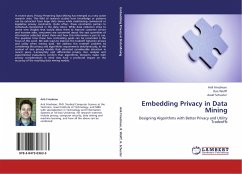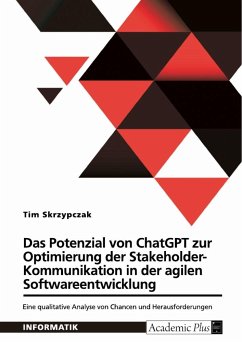Nicht lieferbar

Minimum-Distortion Embedding
Versandkostenfrei!
Nicht lieferbar
Embeddings provide concrete numerical representations of otherwise abstract items, for use in downstream tasks. For example, a biologist might look for subfamilies of related cells by clustering embedding vectors associated with individual cells, while a machine learning practitioner might use vector representations of words as features for a classification task. In this monograph the authors present a general framework for faithful embedding called minimum-distortion embedding (MDE) that generalizes the common cases in which similarities between items are described by weights or distances. Th...
Embeddings provide concrete numerical representations of otherwise abstract items, for use in downstream tasks. For example, a biologist might look for subfamilies of related cells by clustering embedding vectors associated with individual cells, while a machine learning practitioner might use vector representations of words as features for a classification task. In this monograph the authors present a general framework for faithful embedding called minimum-distortion embedding (MDE) that generalizes the common cases in which similarities between items are described by weights or distances. The MDE framework is simple but general. It includes a wide variety of specific embedding methods, including spectral embedding, principal component analysis, multidimensional scaling, Euclidean distance problems, etc. The authors provide a detailed description of minimum-distortion embedding problem and describe the theory behind creating solutions to all aspects. They also give describe in detail algorithms for computing minimum-distortion embeddings. Finally, they provide examples on how to approximately solve many MDE problems involving real datasets, including images, co-authorship networks, United States county demographics, population genetics, and single-cell mRNA transcriptomes. An accompanying open-source software package, PyMDE, makes it easy for practitioners to experiment with different embeddings via different choices of distortion functions and constraint sets. The theory and techniques described and illustrated in this book will be of interest to researchers and practitioners working on modern-day systems that look to adopt cutting-edge artificial intelligence.











